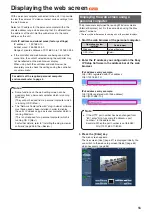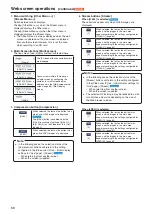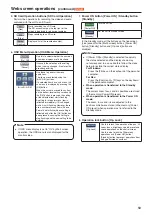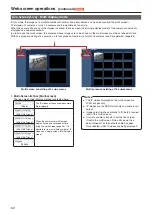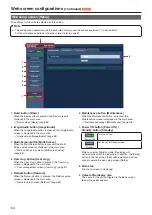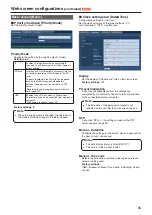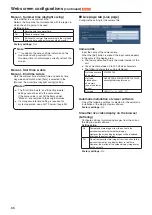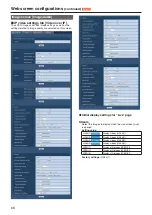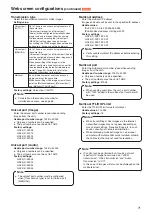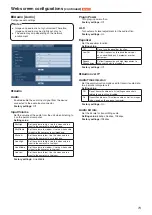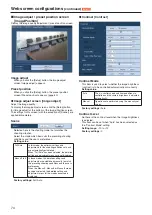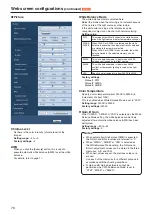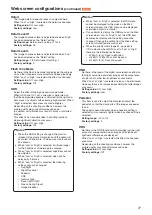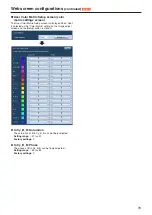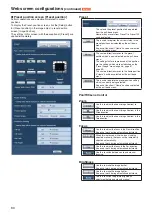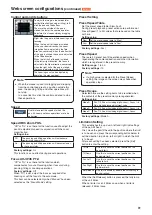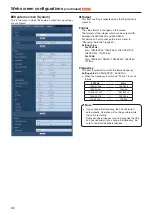
69
Web screen configurations
(continued)
There are restrictions on the simultaneous transmission of
JPEG and H.264.
For details, refer to page 72.
z
JPEG(1) • JPEG(2) • JPEG(3)
Configure the settings for JPEG images.
JPEG transmission
Set whether to transmit JPEG images.
Factory settings:
On
Image capture size
Select from the following resolutions for the images to be
displayed when displaying JPEG images.
Setting value:
1920x1080, 1280x720, 640x360, 320x180
Factory settings:
JPEG(1): 640×360
JPEG(2): 1280×720
JPEG(3): 320×180
Refresh interval
Select the frame rate for JPEG images.
Setting value:
For 59.94Hz:
5fps, 15fps, 30fps
For 50Hz:
5fps, 12.5fps, 25fps
Factory settings:
JPEG(1): 30fps
JPEG(2): 5fps
JPEG(3): 30fps
●
The frame rate may be slower depending on the
network environment, resolution, image quality,
access volume, etc.
Note
Image quality
Specify the JPEG image quality (2 types) for each
resolution.
Setting value:
Fine, Normal
Factory settings:
Fine
z
H.264(1) • H.264(2) • H.264(3) • H.264(4)
Configure the settings for H.264 images.
H.264 transmission
Whether to transmit the H.264 images is set here.
Factory settings:
On
Internet mode (over HTTP)
This setting is selected when transmitting H.264 images
over the Internet.
H.264 images can be transmitted using the same
broadband router settings as when transmitting JPEG
images.
Setting value:
On
The H.264 images and audio are transmitted using
the HTTP port. For details on setting the HTTP port
number, refer to page 90.
Off
The H.264 images and audio are transmitted using the
UDP port.
Factory settings:
Off
●
When [On] is set, only [Unicast port (AUTO)] can be
selected as the [Transmission type] setting.
●
When [On] is set, it takes a few seconds before the
H.264 images are displayed.
●
When this is set to [On], H.264 images may
not appear depending on the number of users
accessing the unit at the same time and whether
audio data exists.
●
When this is set to [On], access will be limited to
IPv4.
Notes

